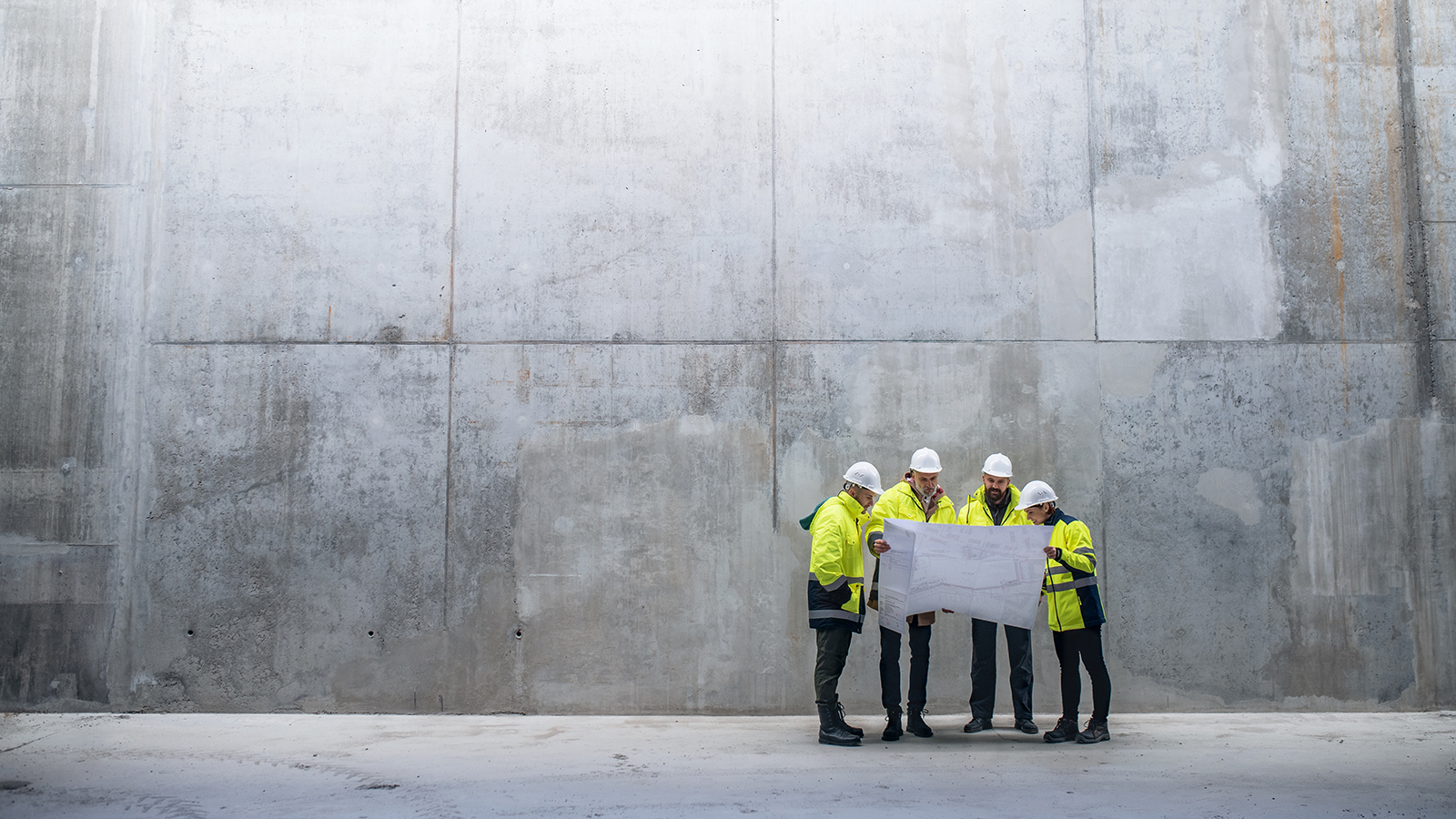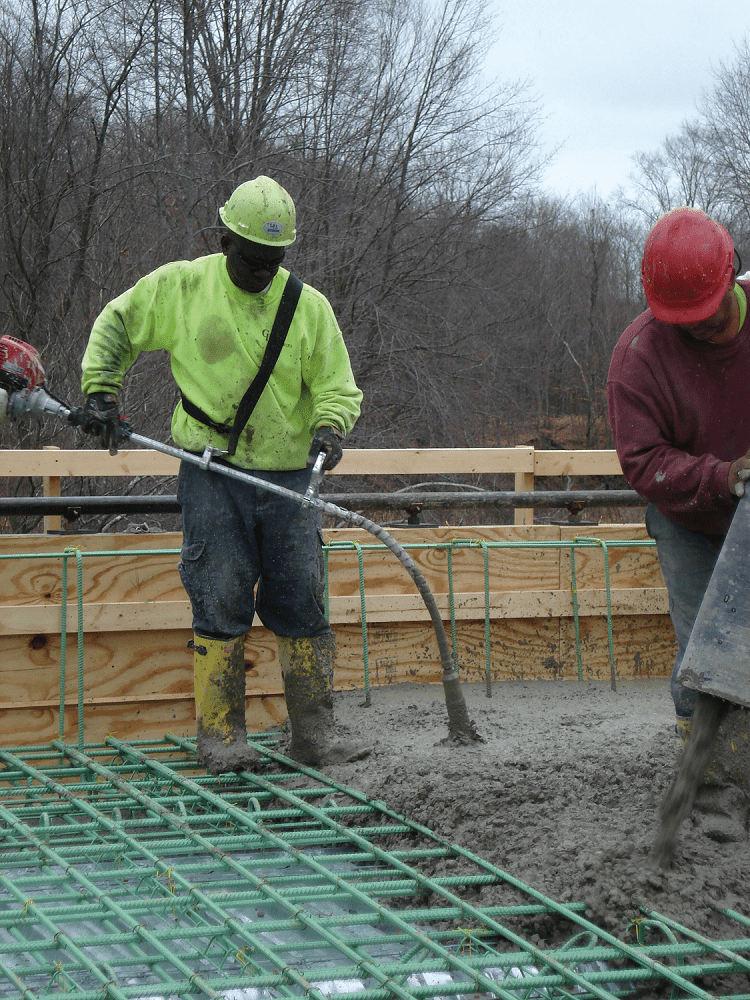How to Improve Your Project’s Lifespan with West Coast General Engineering industrial concrete
How to Improve Your Project’s Lifespan with West Coast General Engineering industrial concrete
Blog Article
The Important Role of Concrete Structure in Structural Integrity and Durability
When it comes to developing a residential or commercial property, the foundation is more important than you might assume. Concrete foundations offer unequaled toughness and durability, ensuring your structure can withstand numerous environmental obstacles. Without a strong base, you run the risk of prospective problems like changing or fracturing, which can compromise security and value. Comprehending the subtleties of concrete foundations can be the trick to preserving your investment for years to come. What should you take into consideration following?
Understanding the Value of Concrete Foundations
Concrete foundations are essential to the total security of any kind of framework, as they provide the crucial support needed to stand up to different tons and environmental conditions. When you think of developing a home or an industrial area, the foundation is the initial thing you need to take into consideration. It functions as an obstacle versus dampness, securing your residential property from water damage. A well-placed concrete structure additionally avoids settling and changing, which can bring about splits in wall surfaces and floorings. You'll want to assure that the foundation is appropriately created and reinforced, as this impacts the durability of your building. Additionally, a strong foundation can boost power effectiveness by decreasing air leaks. Remember, ignoring the importance of a concrete foundation can lead to pricey repairs down the line. So, purchasing a top quality foundation upfront is necessary for the stability and toughness of your framework.
Advantages of Concrete Structures for Structural Stability
While lots of variables add to a building's architectural honesty, concrete structures provide unequaled longevity and toughness. You'll value that concrete can hold up against extreme weather, withstanding both dampness and temperature level changes. This durability means your structure is less likely to experience cracking or shifting in time, which can compromise its safety.Additionally, concrete's fundamental weight supplies a solid base, avoiding motion during all-natural occasions like quakes or floodings. When you choose a concrete structure, you're additionally deciding for reduced upkeep; unlike wood, it will not rot or bring in insects, saving you money and time in repairs.Moreover, concrete's fire resistance supplies added security, guaranteeing your framework can withstand heats without substantial damage. Overall, buying a concrete foundation implies you're focusing on the long-term security and honesty of your building, making it a wise selection for any kind of building and construction task.
Usual Sorts Of Concrete Foundations
When it comes to developing foundations, comprehending the typical kinds of concrete foundations can assist you make educated selections for your job. One of the most prevalent kinds consist of slab-on-grade, crawl room, and full cellar foundations.A slab-on-grade foundation is a basic, economical option, where a thick concrete piece is poured directly on the ground. This type functions well in warm climates, as it lessens heat loss.Crawl space foundations elevate the home slightly above ground, permitting ventilation and accessibility to plumbing and electric systems. This style can aid protect against wetness issues.Full cellar foundations offer additional living or storage area while offering outstanding architectural assistance. They call for even more excavation and are commonly utilized in colder environments to avoid frost heave.
Factors to Take Into Consideration When Designing a Concrete Foundation

Ideal Practices for Putting Up Concrete Foundations
When you're mounting a concrete structure, appropriate website prep work is necessary to ensure stability (West Coast General Engineering concrete foundation). You'll additionally require to recognize reinforcement methods to improve toughness and toughness. Do not forget the treating process, as it plays an essential function in attaining a solid structure.
Website Prep Work Relevance
Although it might seem uncomplicated, proper site preparation is important for guaranteeing a strong and long lasting concrete structure. Start by getting rid of the area of any kind of particles, plants, or natural material that might compromise the foundation's stability. Next off, analyze the soil kind and compaction; you could require to excavate or include products to create a stable base. Level the ground to assure even weight distribution and avoid resolving problems later on. Setting up proper water drainage systems is also vital to protect against water buildup, which can damage the structure with time. Lastly, mark out the structure's dimensions precisely to lead the pouring procedure. By adhering to these steps, you'll set the phase for a successful concrete structure that stands the examination of time.
Reinforcement Techniques Explained
As soon as the website is effectively prepared, the next step in guaranteeing a strong concrete foundation entails applying efficient reinforcement methods. You ought to start by using steel rebar, which supplies tensile toughness and assists prevent splitting. Lay the rebar in a grid pattern, seeing to it it rises utilizing spacers to preserve proper insurance coverage. Furthermore, consider using cord mesh for extra assistance, especially in locations based on heavy loads. Don't forget to link the rebar intersections securely with cable. For larger structures, fiber reinforcement can enhance durability, minimizing the danger of shrinkage splits. Always follow local structure codes and standards to make sure compliance. By applying these support strategies, you'll considerably improve your structure's toughness and durability, laying a solid foundation for your framework.
Healing Refine Essentials
To guarantee your concrete foundation treatments appropriately, it is essential to maintain sufficient dampness and temperature conditions promptly after putting. Begin by covering the surface area with a wet cloth or plastic bed linen to preserve dampness. This maintains the concrete hydrated, stopping cracks and ensuring toughness. You must also keep an eye on the temperature; perfect healing problems are between 50 ° F and 90 ° F. If it's also hot, haze the surface area on a regular basis to prevent rapid dissipation. For winter, consider using insulating blankets to keep warmth. Purpose for a healing period of at the very least seven days, as this is essential for optimum stamina development. By adhering to these finest methods, you'll improve your foundation's longevity and longevity, guaranteeing architectural stability for many years ahead.
Maintenance of Concrete Foundations for Longevity
To maintain your concrete foundation solid and long-term, regular evaluations are vital. You must additionally assure efficient water drainage solutions are in area to protect against water damage. If you identify any cracks, resolving them promptly will save you from larger problems down the line.

Regular Examinations and Assessments
While routine evaluations and evaluations could feel like a duty, they're important for keeping the stability of your concrete foundation. By consistently looking for splits, changes, or signs of wear, you can catch potential issues before they rise into costly fixings. Seek any water pooling around the structure or unusual settling, as these can indicate underlying issues. It's additionally important to monitor any type of modifications in your home's structure, like doors that stick or home windows that do not open smoothly. Maintaining a record of your inspections aids track modifications in time, allowing for aggressive maintenance. Ultimately, these evaluations guarantee your foundation continues to be secure, supporting the durability and safety and security of your entire structure. Don't overlook this vital element of homeownership!
Reliable Drainage Solutions
Routine examinations can expose problems like drainage problems that could jeopardize your concrete structure's stability. To avoid water buildup, ensure your gutters and downspouts direct water far from the foundation. Installing French drains can efficiently redirect surface and groundwater, minimizing stress on your structure wall surfaces. Furthermore, rating the soil around your home aids ensure that water streams away, instead than pooling near your foundation.Consider making use of sump pumps in areas vulnerable to flooding, as they actively remove excess water. On a regular basis examine for blockages in drainage systems and clear them promptly. You'll secure your structure's stability and long life by taking these proactive steps. Keep in mind, efficient drainage options are necessary for preserving a strong, sturdy concrete structure.
Motivate Fracture Services
When you see fractures in your concrete structure, addressing them without delay is important for preserving its durability. Tiny splits can quickly evolve right into bigger concerns, jeopardizing the architectural integrity of your home. On a regular basis check your structure for signs of damages, such as straight or upright fractures. If you find any type of, do not wait-- repair them immediately. You can make use of epoxy shots or concrete patching substances, which work for sealing fractures. Constantly adhere to the maker's instructions and take into consideration speaking with a specialist for considerable damages. Remember, prompt repairs not just improve your foundation's sturdiness but likewise save you money over time by avoiding more considerable repair more info services down the line. Remain positive, and your foundation will certainly remain strong and safe and secure.
Dealing With Usual Issues With Concrete Structures
Concrete foundations can face numerous issues with time, making it essential to determine and address them immediately. Among the most common issues is cracking, which can take place as a result of temperature changes or clearing up soil. If you observe fractures, it's necessary to evaluate their dimension and deepness; small cracks can commonly be secured, while bigger ones might require specialist evaluation.Water breach is an additional major concern. Excess dampness can cause mold and mildew growth and architectural damage. Warranty correct drainage around your structure to alleviate this danger. Furthermore, look for indications of moving or bowing wall surfaces, as this can suggest underlying concerns with your foundation's stability.Regular inspections are essential to catch these issues early. If you identify any concerning signs, do not wait to consult a foundation specialist. By remaining aggressive, you can maintain the integrity and longevity of your concrete foundation, assuring your home stays risk-free and secure.
Frequently Asked Questions
How Does Soil Kind Influence Concrete Foundation Performance?
Soil type greatly impacts concrete structure efficiency. If you have actually got large clay, for instance, it can create shifting and splitting. Sandy soil might bring about resolving. Understanding your dirt aids guarantee a steady structure.
Can Concrete Foundations Be Repaired if Damaged?
Yes, you can repair broken concrete foundations. Depending upon the level of the damage, techniques like epoxy shot or piece jacking can bring back stability. It's ideal to get in touch with an expert for efficient remedies.
What Is the Regular Life Expectancy of a Concrete Structure?
A concrete structure generally lasts 30 to 100 years, relying on variables like dirt problems, climate, and maintenance. You'll wish to keep an eye on it to guarantee it stays healthy throughout its lifespan.
Exist Option Materials to Concrete for Foundations?
Yes, there are choices to concrete for structures, like steel, wood, or even recycled materials. Each alternative has unique benefits and drawbacks, so you should consider your project's certain requirements when selecting the appropriate material.
Exactly How Does Environment Effect Concrete Structure Sturdiness?
Climate substantially affects concrete foundation toughness (West Coast General Engineering industrial concrete). Extreme temperatures, dampness, and freeze-thaw cycles can weaken the material, causing splits and structural concerns. You must think about regional climate problems when planning your structure to assure long-lasting efficiency
Report this page